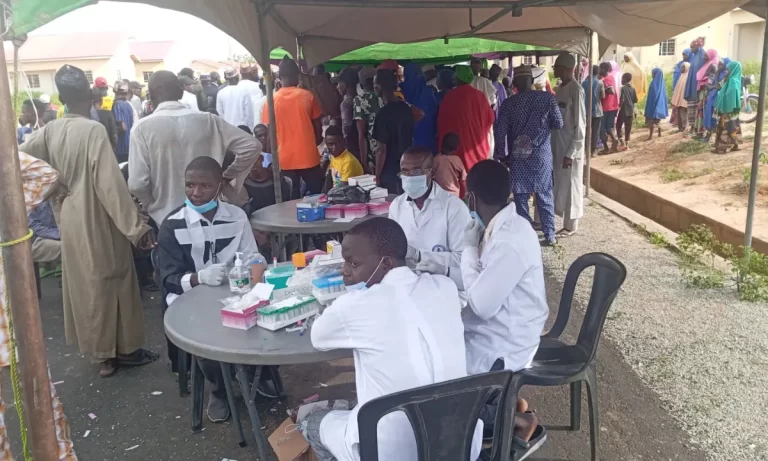As part of efforts to alleviate the suffering of flood victims in Bauchi State, the Coordinating Minister of Health and Social Welfare, Prof Muhammad Ali-Pate has launched a free medical outreach programme offering critical healthcare services to thousands of Internally Displaced Persons, IDPs.
Arogidigba Global Journal reports that flooding caused by heavy rainfall left many homeless and several properties destroyed particularly in Bauchi North Senatorial district.
Speaking at the temporary Internally Displaced Persons, IDP camp in Azare, the Katagum LGA headquarters on Sunday, the Minister commended the dedication and professionalism of the medical team attending to the victims.
“The people are receiving treatment for common diseases like malaria, pneumonia, and hypertension, among others. In these difficult times, we must do everything we can to provide relief to our citizens,” he stated.
He also commended the combined efforts of health professionals, including doctors, pharmacists, nurses, and lab scientists, for their contribution to supporting affected communities.
“Anyone who attends this outreach will be examined, diagnosed, and treated at no cost,” Ali-Pate assured.
He further disclosed that over 1,200 individuals had been treated that day, with many diagnosed with ailments like malaria, pneumonia, and skin conditions.
“This is about providing access in an emergency situation. We have internally displaced populations here, and we must do everything possible to support them,” he stated further.
Ali-Pate added that all nine flood-affected local government areas in the state would benefit from the support, adding that the foundation aims to provide direct assistance to 250 individuals in each affected area.
He called on all well-meaning Nigerians to join in bringing relief to communities impacted by disasters across the country.
In his remark, the Chairman of the NMA Bauchi chapter, Dr. Yusuf Bappa, explained that the outreach was designed to assist those affected by the recent flood disaster in the senatorial zone.
He noted that over 1,000 children, women, and men with varying ailments had been treated at the IDP camp, with severe cases referred to the Federal Medical Centre in Azare for further care.
